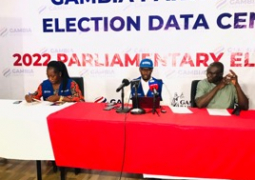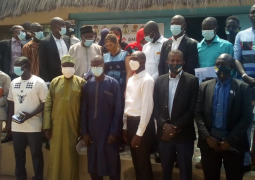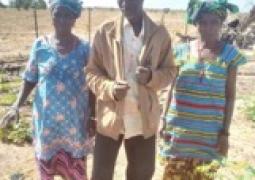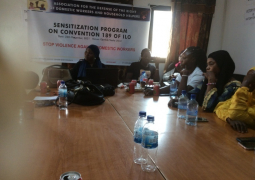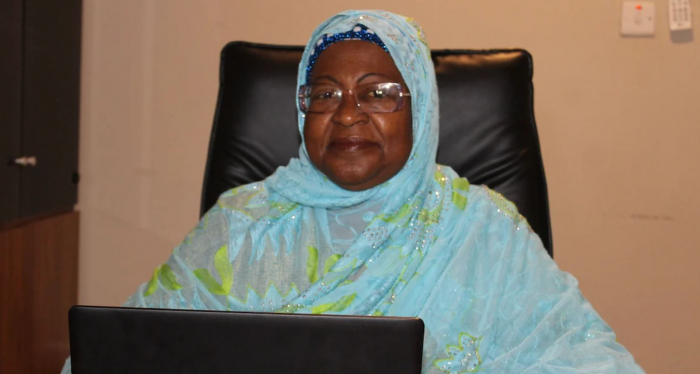
In an exclusive interview with TRRC’s Deputy Chairperson, Adelaide Sosseh who also chairs the Reparations Sub-Committee and works closely with the TRRC’s Women’s Affairs Unit and the Communication and Outreach Unit said “I was annoyed with her [Oumie Jagne] because instead of coming to us, she went to [the] Victim Center and [the] Victim Center, unfortunately, whoever she met there should have said go back to the TRRC but that person did not send her back to the TRRC but [instead] sent her to another doctor”.
The TRRC is a commission mandated to investigate human rights abuses of the former regime spearheaded by the Armed Forces Provisional Ruling Council lead by former President Yahya Jammeh and State Institutions under their control.
According to Commissioner Sosseh, the Interim Reparations is still going on and a lot of people have benefited, though the Turkish Medical Trip has brought so much attention to the reparations process. Detailing how the four victims were selected for the Turkish Medical Trip she explained that “the patients were identified by the medical board and we were lucky to have four places on the Turkey agreement with the Gambia government because it is not only TRRC Victims who went.”
The victims who travelled to Turkey were Yusupha Mbye, Oumie Jagne and Abdou Karim Jammeh, survivors of gunshot wounds during the 10th /11th April 2000 student massacre and Nogoi Njie, a victim of the 14th April 2016 protest for electoral reforms led by the late Ebrima Solo Sandeng. Commissioner Sosseh added that Abdou Karim travelled to Turkey with crutches but came back home walking without them. Meanwhile, Nogoi Njie recently gave an interview updating the media on her recovery so far. However, Oumie Jagne who travelled with the other victims says her treatment has left her worse off.
Speaking about how Oumie handled the situation, Commissioner Sosseh said “it’s unfortunate how she went about it because I would think that if you are sent for treatment abroad and you come back and you got issues, where would be the first institution that you would report to, obviously it would be TRRC and the TRRC will take the necessary steps to ensure that they get the proper diagnosis to know what went wrong but she didn’t do that. [Instead] she chose to use other avenues.”
Trying other avenues is when she “came back to us as a last resort because right now she’s back with the medical board and the medical board are assessing the case [and] the Turkish doctors have sent their report. Which unfortunately is in Turkish, but it will be translated” said Commissioner Sosseh.
Oumie’s case highlights a number of issues. Firstly, she should have been checked upon her return from the Turkish Medical trip to assess her situation. Another important point to note is that Yusupha Mbye has only recently started receiving treatment. Commissioner Sosseh highlighted that “Yusupha is still in Turkey. He’s quite delayed for the simple reason that he was supposed to go into a highly specialised hospital. Unfortunately, Covid-19 came and he could not go into that highly specialised hospital. It is only now that he’s having his treatment”.
It has been widely reported that the TRRC was awarded D50 million for the victims. After confirming with the commission we have been reliably informed that D11.5 million has been spent on both Turkey and Dakar medical trips. Considering the large number of victims, this highlights the fact that more funds are needed to restore the dignity and livelihood of all the victims engaged in the TRRC process.
In the words of the TRRC’s Deputy Chairperson, the Victims will need all the help they can get from the Gambian Government, friends and partners in the diaspora to provide sufficient support via the reparations program.
This article is supported by the International Center for Transitional Justice (ICTJ).
Read Other Articles In National News
